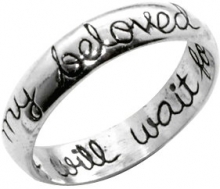 W
WAbstinence is a self-enforced restraint from indulging in bodily activities that are widely experienced as giving pleasure. Most frequently, the term refers to sexual abstinence, or abstinence from alcohol, drugs, or food.
 W
WAlcoholics Anonymous (AA) is an international mutual aid fellowship with the stated purpose of enabling its members to "stay sober and help other alcoholics achieve sobriety." AA is nonprofessional, self-supporting, and apolitical. Its only membership requirement is a desire to stop drinking. The AA program of recovery is set forth in the Twelve Steps.
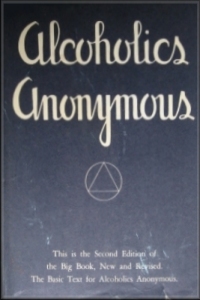 W
WAlcoholics Anonymous: The Story of How More Than One Hundred Men Have Recovered from Alcoholism is a 1939 basic text, describing how to recover from alcoholism. Written by William G. "Bill W." Wilson, one of the founders of Alcoholics Anonymous (AA) and many of the first 100 members of the group, the composition process was collaborative, with drafts of the book sent back and forth between Bill W's group in New York and Dr. Bob, the other founder of A.A., in Akron, OH. It is the predecessor of the seminal "twelve-step method" widely used to treat many addictions, from alcoholism, heroin addiction and marijuana addiction to overeating, sex addiction and gambling addiction, with a strong spiritual and social emphasis.
 W
WCelebrate Recovery is an American Christian twelve-step program designed to facilitate recovery from a wide variety of troubling behavior patterns.
Cocaine Anonymous (CA) is a twelve-step program formed in 1982 for people who seek recovery from drug addiction. It is patterned very closely after Alcoholics Anonymous, although the two groups are unaffiliated. While many CA members have been addicted to cocaine, crack, speed or similar substances, identifying specifically as a cocaine addict is not required.
 W
WDrug addiction recovery groups are voluntary associations of people who share a common desire to overcome drug addiction. Different groups use different methods, ranging from completely secular to explicitly spiritual. Some programs may advocate a reduction in the use of illegal drugs rather than outright abstention, although this is typically not a sustainable treatment plan in the long term. One survey of members found active involvement in any addiction recovery group correlates with higher chances of maintaining sobriety. The survey found group participation increased when the individual members' beliefs matched those of their primary support group. Analysis of the survey results found a significant positive correlation between the religiosity of members and their participation in twelve-step addiction recovery groups and SMART Recovery, although the correlation factor was three times smaller for SMART Recovery than for the twelve-step addiction recovery groups. Religiosity was inversely related to participation in Secular Organizations for Sobriety.
 W
WEmotions Anonymous (EA) is a twelve-step program for recovery from mental and emotional illness. As of 2017 there were approximately 300 EA groups active in the United States and another 300 around the world.
 W
WGROW is a peer support and mutual-aid organization for recovery from, and prevention of, serious mental illness. GROW was founded in Sydney, Australia in 1957 by Father Cornelius B. "Con" Keogh, a Roman Catholic priest, and psychiatric patients who sought help with their mental illness in Alcoholics Anonymous (AA). Consequently, GROW adapted many of AA's principles and practices. As the organization matured, GROW members learned of Recovery International, an organization also created to help people with serious mental illness, and integrated pieces of its will-training methods. As of 2005 there were more than 800 GROW groups active worldwide. GROW groups are open to anyone who would like to join, though they specifically seek out those who have a history of psychiatric hospitalization or are socioeconomically disadvantaged. Despite the capitalization, GROW is not an acronym. Much of GROW's initial development was made possible with support from Orval Hobart Mowrer, Reuben F. Scarf, W. Clement Stone and Lions Clubs International.
 W
WHomosexuals Anonymous (HA) is an ex-gay group which practices conversion therapy and describes itself as "a fellowship of men and women, who through their common emotional experience, have chosen to help each other live in freedom from homosexuality." HA regards homosexual orientation as "sexual brokeness" that may be "healed" through faith in Jesus Christ. In common with other Christian fundamentalist groups, HA regards heterosexuality as "the universal creation-norm". This approach has been criticized for stressing that a person must renounce homosexuality to be a Christian, and because there is no valid scientific evidence that sexual orientation can be changed.
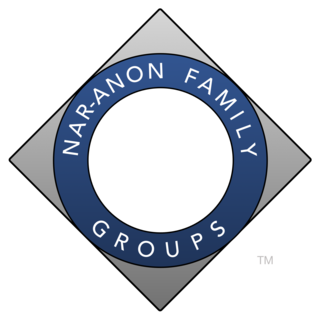 W
WNar-Anon, known officially as "Nar-Anon Family Groups", is a twelve-step program for friends and family members of those who are affected by someone else's addiction. Nar-Anon is complementary to, but separate from, Narcotics Anonymous (NA), analogous to Al-Anon with respect to Alcoholics Anonymous; Nar-Anon's traditions state that it should "always cooperate with Narcotics Anonymous."
 W
WNarcotics Anonymous (NA), founded in 1953, describes itself as a "nonprofit fellowship or society of men and women for whom drugs had become a major problem". Narcotics Anonymous uses a 12-step model developed for people with varied substance use disorders and is the second-largest 12-step organization.
 W
WNeurotics Anonymous (N/A) founded in 1964 is a twelve-step program for recovery from mental and emotional illness. To avoid confusion with Narcotics Anonymous (NA), Neurotics Anonymous is abbreviated N/A or NAIL.
 W
WPills Anonymous (PA) is a twelve-step program founded in 1972 for people who seek recovery from prescription drug addiction. PA is patterned very closely after Alcoholics Anonymous, although the two groups are not affiliated.
 W
WSexaholics Anonymous (SA) founded in 1979 is one of several twelve-step programs for compulsive sexual behavior based on the original twelve steps of Alcoholics Anonymous. SA takes its place among various twelve-step groups that seek recovery from sexual addiction: Sex Addicts Anonymous, Sex and Love Addicts Anonymous, Sexual Compulsives Anonymous and Sexual Recovery Anonymous. Collectively these groups are referred to as "S" groups since all their acronyms begin with that letter: SA, SAA, SLAA, SCA, SRA.
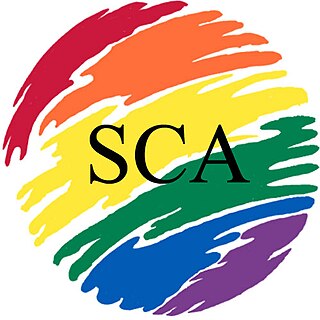 W
WSexual Compulsives Anonymous (SCA) is a twelve-step program for people who want to stop having compulsive sex. SCA founding is attributed variously to 1982 in New York City and to 1973 in Los Angeles. Although the fellowship originally sought to address issues of sexual compulsion among gay and bisexual men, and this is still the fellowships predominant demographic, today the program is LGBT friendly, open to all sexual orientations, and there is an increasing number of women and heterosexual men participating. SCA meetings are most likely to be held in urban areas with larger gay and bisexual male populations. The majority of members are white, but vary in age and socioeconomic background. The only requirement for membership is a desire to stop having compulsive sex.
 W
WStepping Stones is the historic home of Alcoholics Anonymous co-founder Bill Wilson and his wife, co-founder of Al-Anon/Alateen Lois Wilson, in Bedford Hills, New York. The historic site features their house, Bill W.'s writing studio nicknamed "Wit's End", approximately 15,000 objects left by the Wilsons, a water pump house, the original one-car garage, a two-car garage / Welcome Center with an orientation display highlighting some of the 100,000 items in the Stepping Stones Archives, flower garden, community vegetable garden, and more. Lois left the property to The Stepping Stones Foundation - the nonprofit, tax-exempt organization that she founded in 1979. Since Mrs. Wilson's death in 1988 the Stepping Stones Foundation has maintained and preserved the site with the help of friends, and has offered on-site tours by reservation and off-site educational programs.
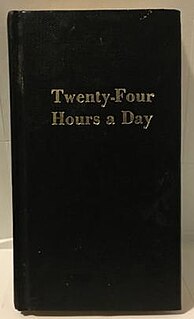 W
WTwenty-Four Hours A Day is a 1954 book written by Richmond Walker (1892-1965), is a book that offers daily thoughts, meditations and prayers to help recovering alcoholics live a sober life. In Alcoholics Anonymous literature Walker became the second most popular A.A. author in total book sales, second only to Bill W. It was often referred to as "the little black book" due to its black cover in the 1960s.